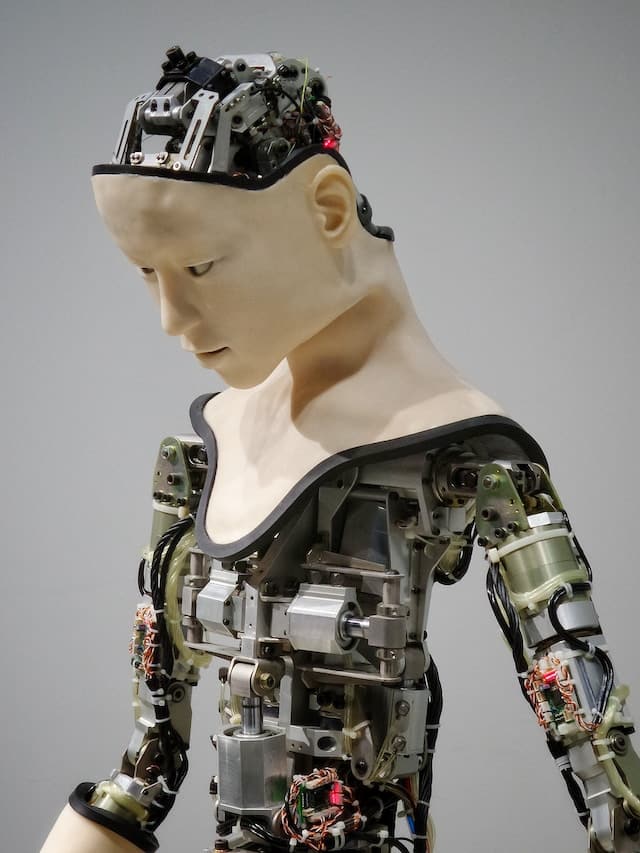The ethics of using AI in criminal profiling

In recent years, there has been a surge in the application of artificial intelligence (AI) in various sectors. From healthcare to finance, the transformative power of AI has been harnessed to improve efficiency and effectiveness. However, when it comes to the criminal justice system, the use of AI raises a host of ethical concerns. Let’s delve into the intricacies of this subject, examining the role of AI in criminal profiling, its benefits, potential risks, and the pressing need for fairness and ethical regulation in its usage.
The Role of AI in the Criminal Justice System
Artificial intelligence has emerged as a powerful tool in the realm of criminal justice. In essence, AI systems leverage data to generate human-like intelligence, which can be used to improve the efficiency and effectiveness of criminal justice operations.
Lire également : The impact of quantum computing on climate modeling
From predictive policing to risk assessment, AI systems are used to forecast future crimes, identify potential criminals, and assess the risk of recidivism – the likelihood of a convicted criminal to reoffend. These systems utilise complex algorithms that analyse vast amounts of data, such as crime rates, demographic data, and past criminal records, to deliver their predictions.
AI is also used in criminal profiling, a law enforcement strategy that involves predicting a criminal’s characteristics based on their criminal behavior. AI tools can help profile criminals more accurately and efficiently, by analysing patterns and correlations in crime data that might be overlooked by human analysts.
A voir aussi : Sustainable urban planning with smart city technologies
The Benefits of AI in Criminal Profiling
The application of AI in criminal profiling brings numerous benefits to the table. For starters, it enhances the efficiency of the criminal justice system by automating tasks that would otherwise consume tremendous amounts of human resources and time.
AI tools can also improve the accuracy of criminal profiling. This is because AI algorithms are capable of analysing large volumes of data and identifying subtle patterns that human analysts might miss. Hence, AI can potentially be used to identify criminals more quickly and accurately, thereby enhancing public safety.
Moreover, AI systems can predict the risk of recidivism, enabling law enforcement agencies to deploy their resources more effectively. This predictive capability can also be used to inform decisions in the criminal justice system, such as sentencing and parole.
The Risks of Using AI in Criminal Profiling
Despite these benefits, the use of AI in criminal profiling is not without risks. One of the key concerns is the potential for bias in AI systems. Bias can be introduced into AI systems in several ways, such as through the data that is used to train the system, the design of the algorithms, or the interpretation of the system’s outputs.
For instance, if an AI system is trained on crime data that disproportionately represents certain demographic groups, the system might develop a bias against these groups. As a result, individuals from these groups may be unfairly targeted or profiled by the criminal justice system.
Furthermore, the use of AI in criminal profiling raises concerns about the transparency and accountability of AI systems. Unlike human profilers, who can explain their reasoning and decisions, AI systems are often seen as ‘black boxes’ that produce outputs without explanation. This lack of transparency can undermine trust in the criminal justice system and hinder efforts to hold the system accountable.
The Need for Fairness and Ethical Regulation
Given these concerns, it’s evident that the use of AI in criminal profiling needs to be guided by principles of fairness and ethical regulation. This involves taking steps to mitigate bias in AI systems, enhancing the transparency and accountability of these systems, and ensuring that the use of AI respects human rights and values.
To mitigate bias, it’s essential to ensure that the data used to train AI systems is representative and unbiased. This might involve collecting more diverse and balanced data, or using techniques to correct for bias in the existing data.
Enhancing transparency and accountability can be achieved by designing AI systems that can explain their predictions and decisions in understandable terms. This would enable human oversight of AI, ensuring that the system’s outputs align with human values and ethical principles.
Finally, the use of AI in criminal profiling needs to be governed by laws and regulations that protect human rights. This might involve setting guidelines for the acceptable use of AI, establishing mechanisms for redress when AI systems cause harm, or setting up oversight bodies to monitor the use of AI in the criminal justice system.
In conclusion, while the use of AI in criminal profiling offers many potential benefits, it also raises important ethical questions. As we continue to navigate this brave new world of AI, it’s crucial that we work towards a criminal justice system that is fair, accountable, and respects human rights. And this will involve taking a hard look at how we use AI in criminal profiling, and making sure that we do so in an ethically and socially responsible manner.
Case Studies: AI in Criminal Profiling
Throughout the world, law enforcement agencies and judicial systems have started to explore the possibilities of integrating AI in their operations. One of the most notable uses of AI in criminal profiling is the predictive policing model.
For example, in the US, the Los Angeles Police Department used a program called PredPol which used machine learning to predict potential crime hotspots. The program analyzed historical crime data to identify patterns and forecast future crime occurrences. However, the program came under scrutiny for its potential to reinforce existing biases, leading to a cessation of its use in 2020.
Similarly, in the Netherlands, a system known as ProKid was used to predict the likelihood of a youth’s involvement in criminal activities. The system, however, was not exempt from controversy. Critics pointed out that the system was opaque and may contribute to profiling and stigmatization of certain groups.
These case studies highlight the real-world implications of AI in criminal profiling, underscoring the need for proper ethical guidelines and fairness in their implementation.
Facial Recognition: An AI Tool with Ethical Implications
Another AI tool that has raised ethical implications in criminal profiling is facial recognition. This technology has been adopted by many law enforcement agencies worldwide due to its ability to identify suspects quickly. However, its accuracy and fairness have come under intense scrutiny.
For instance, studies have shown that some facial recognition systems have higher misidentification rates for individuals of certain races, leading to concerns about racial bias. Moreover, the use of this technology raises privacy concerns, as it allows law enforcement to track individuals without their knowledge or consent.
The European Commission has taken steps to regulate the use of facial recognition in public spaces to protect citizens’ fundamental rights and privacy data. The Commission has proposed strict rules on AI, including provisions for transparency in decision-making, data protection, and respect for human rights. In this context, facial recognition systems would need to comply with these rules to ensure their ethical use in criminal profiling.
Conclusion: Balancing AI Advantages and Ethical Considerations
As we have seen, the integration of artificial intelligence into the criminal justice system is replete with both opportunities and challenges. On one hand, AI tools such as predictive policing, risk assessment, and facial recognition can enhance the efficiency and accuracy of criminal profiling. They can aid law enforcement agencies in making informed decisions, possibly leading to a decline in crime rates and a safer society.
On the other hand, the use of AI in criminal profiling raises significant ethical issues. Concerns around bias, transparency, accountability, and respect for human rights cannot be overlooked. We need to ensure that these systems are not perpetuating existing inequalities, infringing upon privacy data, or making arbitrary decisions without explanations.
As we move into the future, it is paramount that we address these issues head-on. This means investing in research to mitigate biases in AI, implementing robust laws and regulations to govern the use of AI, and ensuring transparency in AI’s decision-making processes.
The goal should not be to replace human decision-making in the justice system entirely but to augment it with AI in a responsible and ethical manner. As we stand on the brink of this new era of artificial intelligence, we must strive for a criminal justice system that is not only more effective and efficient but also fair and just. As of today, the 20th of January, 2024, that remains our challenge and our goal.
